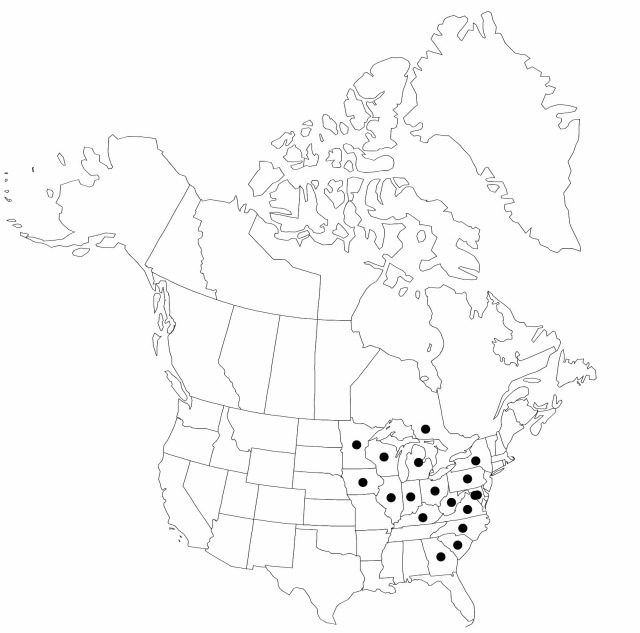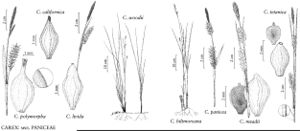Carex woodii
Amer. J. Sci. Arts, ser. 2, 2: 249. 1846.
Plants colonial, long-rhizomatous, arial shoots 2.5–18 cm apart. Culms 30–70 cm, smooth to scabrous distally. Leaves: proximal sheaths bladeless, purple tinged, slender, 1.2–3.5 mm diam.; ligules 0.5–2 mm, wider than long; largest blades green, flat, 5–25 cm × 1.8–3(–4) mm, herbaceous. Inflorescences 5–13 cm, 1.1–2.6 times longer than proximal bract; proximal bracts 3–10.5 cm, sheath 0.5–3 cm, blade 2.5–5.5 cm; pistillate spikes loosely flowered, linear, 1–3.5 cm × 3–5 mm; lateral spikes erect or ascending on stiff peduncles. Pistillate scales mostly white hyaline or purplish brown, apex obtuse or awned. Perigynia ascending to spreading, green to brown, stipitate, 2.5–4 × 1–2 mm, minutely papillose near beak; beak very short, strongly bent. Achenes yellowish brown, 2–2.5 × 1.2–1.4 mm. 2n = 44.
Phenology: Fruiting early summer.
Habitat: Usually dry, calcareous woodlands
Elevation: 50–1600 m
Distribution

Ont., D.C., Ga., Ill., Ind., Iowa, Ky., Md., Mich., Minn., N.Y., N.C., Ohio, Pa., S.C., Va., W.Va., Wis.
Discussion
Selected References
None.
